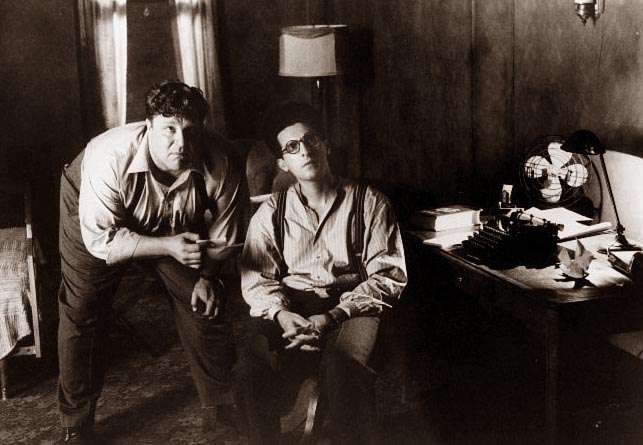I was once asked to make a list of my favorite films, year by year, from the year I was born (1990) until the present. One film a year was permitted and I was required to write a brief explanation as to why that film remained significant for me. I’ve made no secret of my adoration for the Coen brothers, so no one was surprised when “The Big Lebowski” and “Fargo” were mentioned (“Lebowski” just beat out “The Truman Show” for my 1998 film and “Fargo” was uncontested in an overall mediocre year for cinema). What did surprise me, however, was how many people were unfamiliar for my 1991 choice, “Barton Fink.”
Our titular character, portrayed with anxious passive-aggressiveness by John Tuturro, is a leftist playwright from New York City who has recently made the transition to film. Barton is set to capture the “working class stiff” and show the highly educated elitists what being lower middle class is really like. When Barton’s large, jubilant neighbor (Coen’s regular John Goodman), a traveling salesman with the gift for gab, drops by Barton’s apartment to “tell him some stories” about the working class man, Barton interrupts to monologue about the importance of listening. The Coens don’t miss an opportunity for satire or irony and every minute detail, from the sloppy wallpaper to the mosquito to the elevator to the absurd ending (“absurd” defined in both the terms of Camus and the conventional use), the film is a pastiche of snobbery and high-art. The film doesn’t wink at us, though: Barton, always concerned with his own intellect and self-inflicted moral obligations, isn’t even in on the satire—he plays it serious the whole time, not understanding his place until the Sisyphean ending. By the time Barton realizes the futility of his existence, his world has already fallen apart (a good thing, some might say).
To understand “Barton Fink,” one must have a formidable knowledge of literature, existentialism, postmodernism, leftist and rightist politics of the 1930s and 40s, Judaism, Hollywood, and the strange history of the Coens themselves: this rather heavy prerequisite was assumedly much to ask of most mainstream viewers, and “Fink,” while highly lauded amongst European scholars and critics, remains one of the brothers’ most unpopular films amongst casual viewers. There’s a Faulkner character in all-but-name (John Mahoney—perfect) and a stereotypically Jewish film producer (Michael Lerner in an Oscar-nominated role), two professionals who know the business and try to help Barton. Barton, of course, refuses their advice and tries to be individually minded; his demise is at once tragic and then subtly funny.
The Coens are best known for their pitch-black humor and razor-sharp dialogue, as seen in the once-cult now-iconic “Big Lebowski” and Oscar winner “Fargo.” Their Cormac McCarthy adaptation “No Country for Old Men” showcased the pair at their most sinisterly serious and substituted meditations on life and death, ravenous landscapes, and stark existentialist beauty for the leitmotif and rambling musings of “O Brother, Where Art Thou?” I’ve made no secret of my near-obsessing over the two-headed director, as choppy as their career has been, but I find their perennial persistence for cinematic eccentricity to be engaging and refreshing, even when they fall short of expectations.
But it’s “Barton Fink,” their highly-literate, abstract attempt at Dali-esque surrealism, that continues to fascinate me the most. While not their most emotionally satisfying endeavor (not a criticism, as the apparent lack of emotional resonance fits well within the existentialist theme), the film has been likened by some as the cinematic equivalent to a Pynchon novel: it’s an intricate joke without a punch line. The cinematography, courtesy of Roger Deakins, brings to mind the works of auteurs Hitchcock, Kubrick, and Polanski, and the meta-narrative echoes Faulkner, Hemmingway, Clifford Odets and Flannery O’Connor. The film may not have deserved its unprecedented sweep at Cannes (film, director, actor), but it’s certainly a treat for those who are willing to dig a little deeper.
9/18/11

Well I’m sold. I’ve had Barton Fincke sitting in my Netflix queue for a while now but have never gotten around to it. I think maybe I’ll watch it tonight. Nice review, Greg!